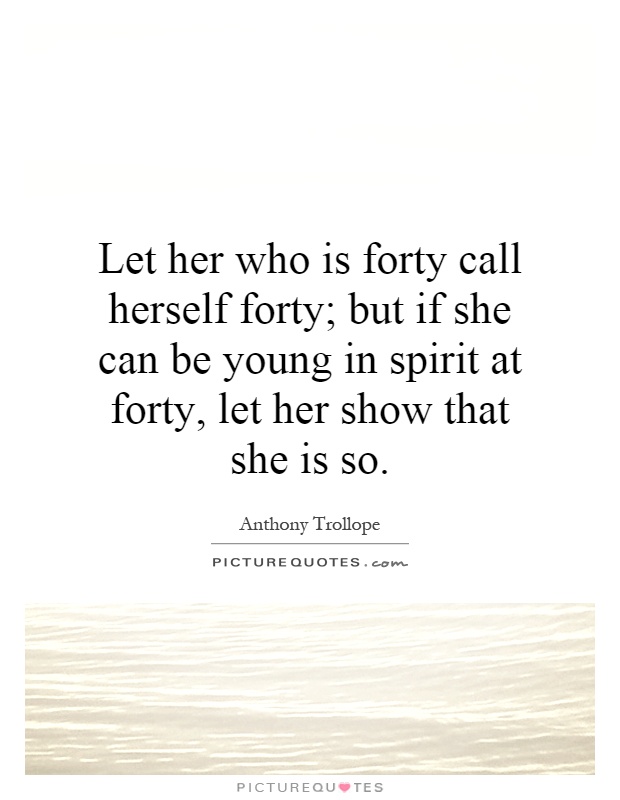Let her who is forty call herself forty; but if she can be young in spirit at forty, let her show that she is so

Let her who is forty call herself forty; but if she can be young in spirit at forty, let her show that she is so
Anthony Trollope, a renowned English novelist of the Victorian era, was known for his keen observations of society and human nature. In his works, Trollope often explored themes of age, class, and gender, shedding light on the complexities of life in 19th-century England. One of his most famous quotes, “Let her who is forty call herself forty; but if she can be young in spirit at forty, let her show that she is so,” encapsulates his nuanced understanding of the human experience.In this quote, Trollope challenges societal norms and expectations surrounding age and maturity. He suggests that a woman should not be defined solely by her age, but rather by her spirit and vitality. Trollope recognizes that age is just a number and that one’s true essence lies in their attitude and outlook on life. He encourages women to embrace their age proudly, but also to cultivate a youthful spirit that transcends the limitations of time.
Trollope’s words are particularly relevant in today’s society, where ageism and stereotypes about aging continue to persist. Women, in particular, are often judged and marginalized based on their age, with societal pressures dictating how they should look, act, and feel at different stages of life. Trollope’s quote serves as a reminder that true beauty and strength come from within, and that a youthful spirit can defy the constraints of age.
Furthermore, Trollope’s quote can be seen as a call to action for women to break free from societal expectations and embrace their individuality. By showing that they are young in spirit, women can challenge stereotypes and redefine what it means to age gracefully. Trollope’s message is empowering and liberating, urging women to live authentically and unapologetically, regardless of their age.












 Friendship Quotes
Friendship Quotes Love Quotes
Love Quotes Life Quotes
Life Quotes Funny Quotes
Funny Quotes Motivational Quotes
Motivational Quotes Inspirational Quotes
Inspirational Quotes